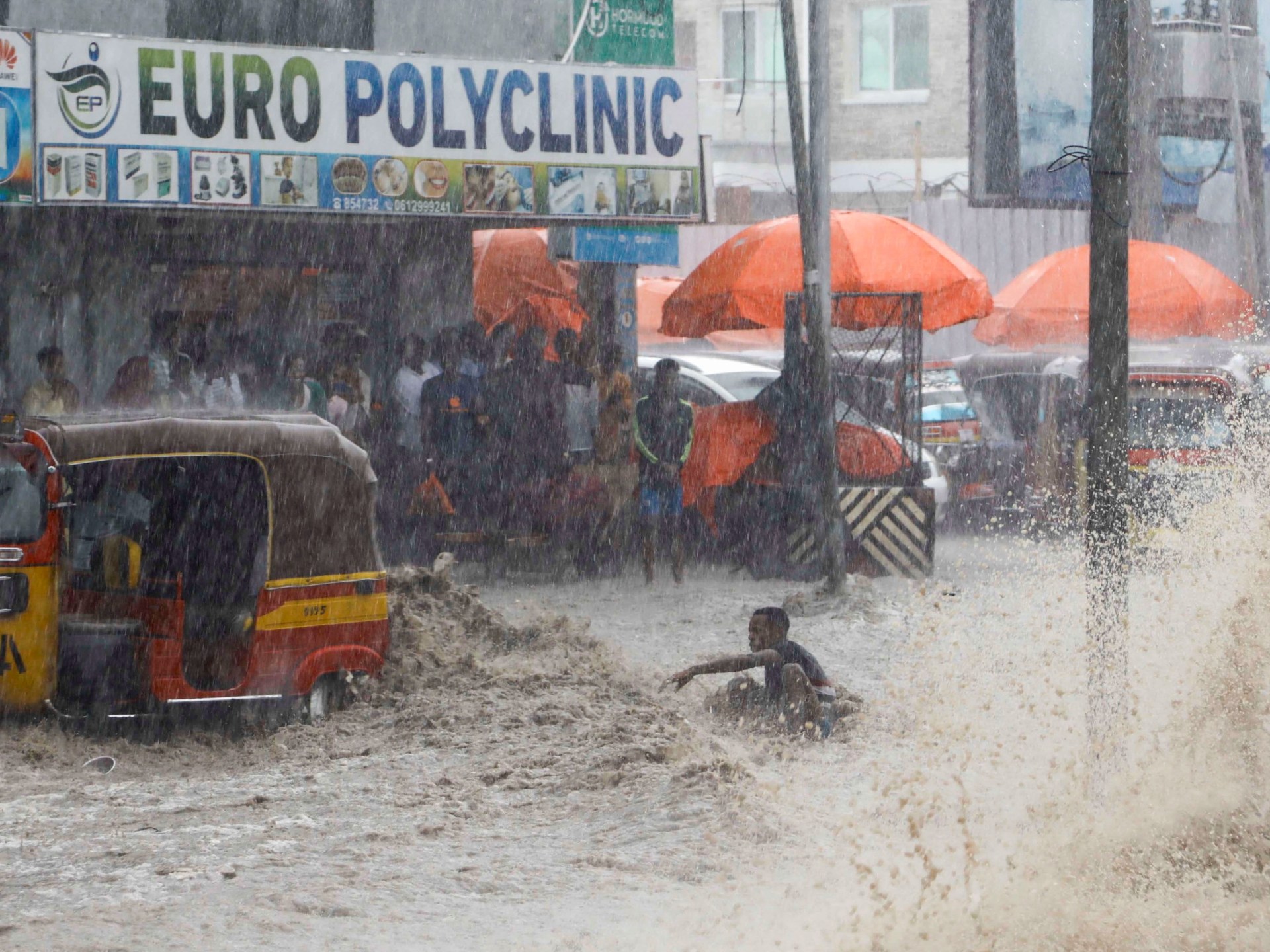
East Africa has been hit for weeks by torrential rain and flooding associated with the El Niño weather phenomenon.
At least 47 people have been killed and 85 others injured in landslides caused by floods in northern Tanzania, a local official says, warning that the death toll could rise.
Heavy rain hit the town of Katesh, about 300 km (186 miles) north of the capital Dodoma, on Saturday, district commissioner Janeth Mayanja said.
“Until then [Sunday] By the evening, the death toll reached 47 and 85 injured,” Queen Sendiga, regional commissioner for Manyara region in northern Tanzania, told local media.
Both warned that the death toll was likely to rise. Mayanja added that many roads in the area were blocked by mud, water and fallen trees and stones.
Tanzania’s President Samia Suluhu Hassan, who was in Dubai for the COP28 climate conference, expressed her condolences and said she had ordered the deployment of “further government efforts to save people.”
“We are very shocked by this event,” she said in a video message posted online by the Tanzanian Ministry of Health.
Endangered region
After an unprecedented drought, East Africa has been hit for weeks torrential rains and floods Connection with the El Niño weather phenomenon.
El Niño is a naturally occurring weather phenomenon that originates in the Pacific Ocean and is causing increasing heat worldwide, causing drought in some areas and heavy rainfall elsewhere.
The rains have displaced more than a million people in Somalia and left hundreds dead. In May, heavy rains in Rwanda caused devastating floods and landslides, killing at least 130 people.
The Horn of Africa is one of the regions most affected by climate change as extreme weather events become more frequent and intense.
Since the end of 2020, Somalia and parts of Ethiopia and Kenya have been suffering from the region’s worst drought in 40 years.
In 2019, two months of relentless rains in several East African countries killed at least 265 people and displaced tens of thousands.
The effects of El Niño, a weather phenomenon that contributes to rising global temperatures, may be exacerbated by climate change, scientists say.
In response, African leaders are responding urge for new global taxes and changes to international financial institutions to help finance climate action.
The launch of a “loss and damage” fund at the COP28 summit in Dubai earlier this week was hailed as a “loss and damage” fund historical Because the biggest historical polluters will pay for the damage caused to the countries most affected by the climate crisis, but at the same time least responsible for it.
However, the details of the fund have not yet been fleshed out, and although 118 countries committed to promoting clean energy at the summit, the world continues to fall far short of the Paris Agreement’s goal of limiting global warming to 1.5 degrees Celsius .
Scientists expect the worst effects of the current El Niño to be felt in late 2023 and into next year.






Recent Comments